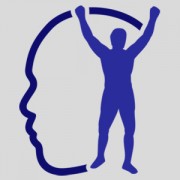MESSAGE #658 WHAT IS WRIGHT?
Today’s message is especially dedicated to all of the attendees at the USPTA Eastern Division Conference in Mt. Kisco, NY.
“There’s an old story about two men on a train. One of them, seeing some naked-looking sheep in a field, said, ‘Those sheep have just been sheared.’ The other looked a moment longer, and then said, ‘They seem to be – on this side.’ It is in such a cautious spirit that we should say whatever we have to say about the workings of the mind.”
-JOHN HOLT, How Children Learn
One of the worst things you can say is, “This is the right way.”
There is no “right” way.
The worst thing I can do as a teaching pro is to teach everyone the same way. There is no “right” way to teach. Not all students are the same, so why would I teach all of them using the same method?
Some students have been playing longer.
Some students are taller than others.
Some students learn faster than others.
If your main objective is to get through your lesson plan, no matter what, both you and your student are missing out.
Use your lesson plan as a fluid compass, not a rigid map.
As a speaker, the worst thing I can do is focus on getting through my agenda. At every talk I give, I know the material that I am presenting, but I never go in the same order. This way, not only do I speak from the heart, but often, I find new ways of doing and saying things. Besides, every audience is different, so I need to make adjustments accordingly.
There is no right way – just different options.
Thanks for reading.

